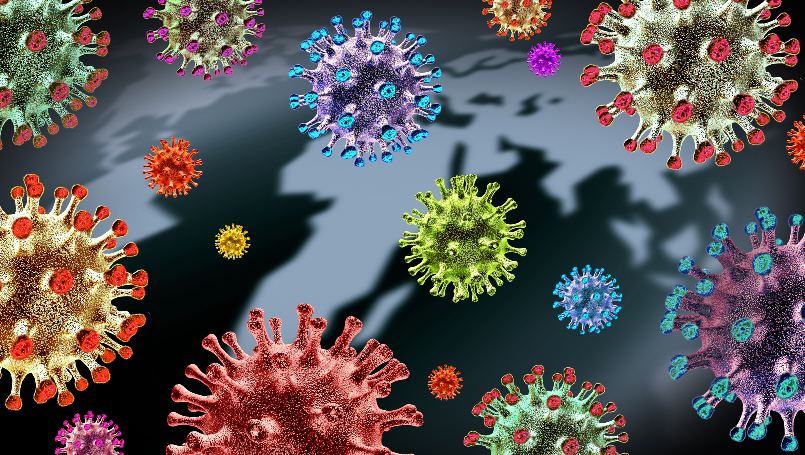
COVID-19 has introduced many people to the term “variant” as it relates to viruses for the first time, even though it’s common for many viruses to change over time.
We asked Dr. Christopher Carpenter, Chief of Infectious Diseases, Beaumont, Royal Oak, to provide some background on variants, including how common they are and how to fight against them:
How common are virus variants and how are they created?
Variants are created when a virus mutates or reproduces with an “error” or change in its genetic code. Some viruses mutate frequently, such as those that cause the common cold (e.g., rhinovirus), influenza, hepatitis C and HIV. Others like the chicken pox virus (varicella-zoster virus) and the mono virus (Epstein-Barr virus), mutate less frequently.
Viruses like SARS-CoV-2 are RNA viruses and they mutate frequently. If the mutation offers a survival advantage it may be reproduced at a higher rate than the virus it developed from. In these situations, a new variant or strain may develop.
Is this something unique to COVID-19 or to be expected with most viruses?
HIV and Hepatitis C mutate frequently, which may help them evade antiviral treatments. Influenza also mutates frequently and combines with other types of influenza viruses to make new, and potentially more dangerous, types.
Given what we know, has COVID-19 followed similar patterns of variants being created?
The development of SARS-CoV-2 variants is not surprising. The more people infected, the more opportunities for mutations that provide a survival advantage to the virus (e.g., more contagious), the more likely that it will develop into a variant that will endure.
What’s the best strategy for eliminating or minimizing variants?
The best strategy is to reduce the number of infections. We can do that by reducing our own exposure risk by following CDC, WHO and local public health guidance, including:
- masking when appropriate
- social distancing
- getting tested if you develop symptoms
- avoiding close contact with others if you come down with the infection
While variants are inevitable with viruses like this, vaccines remain our best strategy to limiting new variants, slowing the spread and ending the pandemic.
